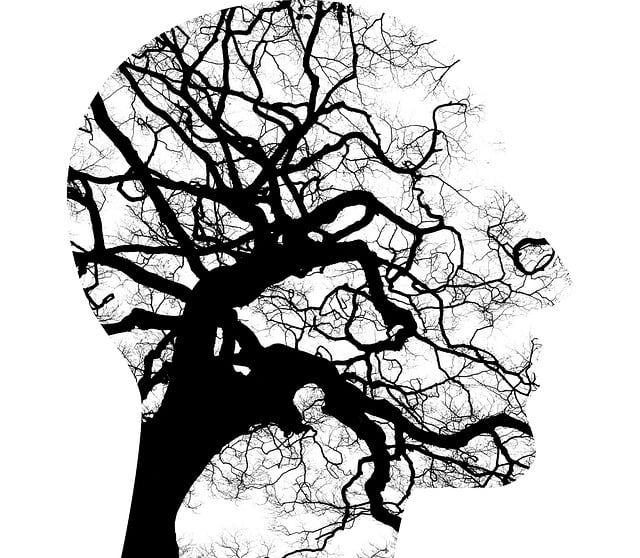Boulder Adjustment Disorder (BAD) is a mental health condition demanding specialized therapy from professionals who face unique challenges in managing it. Effective BAD therapy involves coaching programs, specialized sessions focusing on change processing, and evidence-based practices to enhance adaptability and long-term well-being. A robust risk management plan, including boundary setting, trauma-informed care, and burnout prevention strategies, is crucial for professionals' optimal health and practice sustainability. By integrating self-care, supervision, peer support, mentoring, mental health policy analysis, and advocacy, therapists can deliver effective care, such as Boulder Adjustment Disorder therapy, while fostering healthier work-life balances.
“In the realm of mental health care, effective risk management is paramount to ensuring patient safety and professional resilience. This comprehensive guide delves into essential strategies for navigating challenges, particularly those posed by Boulder Adjustment Disorder (BAD). We explore the intricate relationship between therapy and BAD risk mitigation, offering a detailed overview of best practices. From developing robust risk management plans to fostering professional well-being, this article equips mental health professionals with tools to thrive in their practice while providing optimal care.”
- Understanding Boulder Adjustment Disorder: A Comprehensive Overview
- The Role of Therapy in Managing Mental Health Risks
- Developing a Risk Management Plan for Effective Practice
- Strategies for Maintaining Professional Resilience and Well-being
Understanding Boulder Adjustment Disorder: A Comprehensive Overview

Boulder Adjustment Disorder (BAD) is a complex condition that can significantly impact mental health professionals. It arises from sudden or significant changes in one’s life, leading to feelings of disorientation and distress. This disorder often manifests as a reaction to major transitions, such as relocating to a new city, changing careers, or personal losses. For mental health practitioners, who are already accustomed to managing intense emotional states, BAD can pose unique challenges.
Therapy for Boulder Adjustment Disorder involves a multifaceted approach tailored to each individual’s needs. Mental wellness coaching programs play a crucial role in helping professionals develop coping strategies and enhance their resilience. By focusing on burnout prevention and confidence boosting, these programs empower practitioners to navigate life transitions more effectively. Through specialized therapy sessions, professionals learn to process and integrate changes, ultimately fostering mental adaptability and promoting long-term well-being.
The Role of Therapy in Managing Mental Health Risks

Therapy plays a pivotal role in managing mental health risks, serving as a cornerstone within the broader framework of risk management planning for professionals in this field. Mental health experts utilize various therapeutic approaches to help individuals navigate and overcome challenges, including those associated with adjustment disorders like Boulder Adjustment Disorder. Through tailored interventions, therapists foster resilience, equip clients with coping strategies, and provide safe spaces for emotional exploration, thereby mitigating risks and enhancing overall well-being.
In the context of risk management planning for mental health professionals, therapy is not merely a reactive measure but a proactive tool. Mental Health Policy Analysis and Advocacy guides therapists in staying abreast of evidence-based practices and legislative changes related to patient care. Moreover, Compassion Cultivation Practices have gained prominence, enabling therapists to cultivate self-compassion, which in turn improves their ability to connect with clients, offer empathetic support, and create a nurturing environment conducive to healing.
Developing a Risk Management Plan for Effective Practice

Developing a robust Risk Management Plan is an integral part of effective practice for mental health professionals, ensuring they can deliver quality care while mitigating potential risks and challenges. This process involves identifying specific hazards within the therapeutic environment, such as complex patient cases or intense emotional interactions. By creating a structured plan, therapists can implement Boulder Adjustment Disorder Therapy techniques to address these issues proactively. Such strategies may include establishing clear boundaries, utilizing evidence-based interventions for trauma-informed care, and fostering positive thinking among clients to enhance emotional healing processes.
Moreover, risk management plans should incorporate burnout prevention strategies tailored for healthcare providers. This includes prioritizing self-care practices, regular supervision, and access to peer support networks. By integrating these measures, mental health professionals can maintain optimal well-being while navigating the demands of their work. This proactive approach ensures sustainable practice and fosters a healthier work-life balance, ultimately benefiting both the practitioners and the clients they serve.
Strategies for Maintaining Professional Resilience and Well-being

Maintaining professional resilience and well-being is crucial for mental health professionals to deliver effective care. Strategies such as self-care practices, including regular exercise, mindfulness meditation, and adequate sleep, are essential to manage stress levels. Additionally, seeking supervision and engaging in peer support networks can provide a safe space to process complex cases and prevent burnout. Mentoring programs specifically designed for therapists can offer guidance and foster a sense of community, enhancing resilience against the challenges of working with clients dealing with conditions like Boulder Adjustment Disorder Therapy.
Integrating mental health policy analysis and advocacy into professional development is another powerful approach. By staying informed about advancements in research and changes in Mental Illness Stigma Reduction Efforts, professionals can adapt their practices to provide more inclusive and effective care. This holistic approach not only contributes to individual well-being but also ensures that the field of mental health therapy keeps pace with evolving understanding and societal shifts.
Mental health professionals play a vital role in helping clients navigate challenges, but they must also prioritize their own well-being. By understanding conditions like Boulder Adjustment Disorder and integrating effective therapy practices, professionals can enhance their resilience. Developing a comprehensive risk management plan, coupled with strategies for maintaining professional resilience, ensures a healthier and more sustainable practice. Incorporating these measures allows mental health experts to provide exceptional care while mitigating potential risks.














